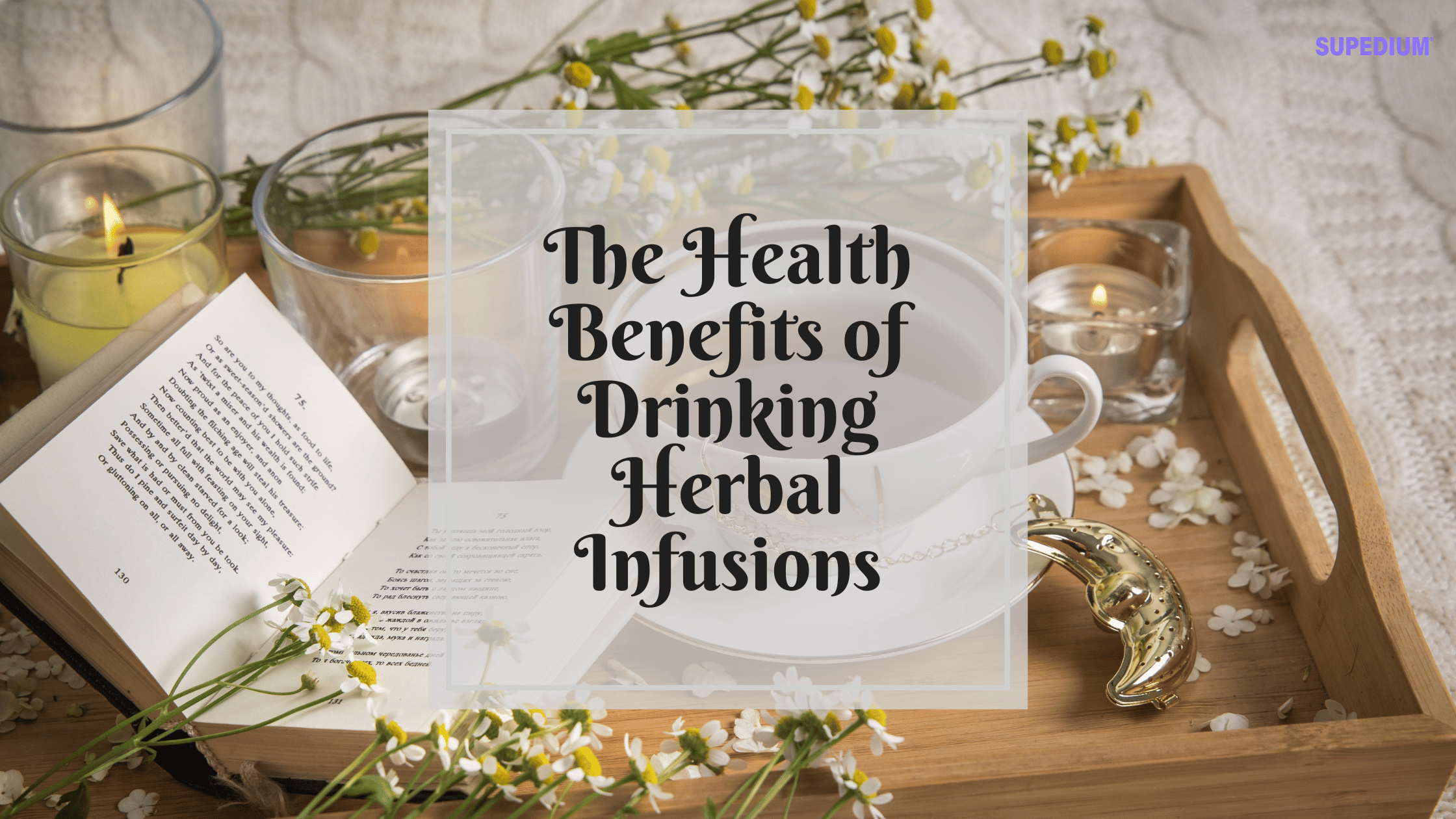Table of Contents
![]()
Introduction
Herbal infusions, often simply referred to as herbal teas, are beverages made by steeping herbs, flowers, seeds, or roots in hot water. Unlike traditional teas that derive from the Camellia sinensis plant, herbal infusions can be crafted from a wide variety of plants, offering a diverse array of flavors and health benefits. These infusions have been cherished in many cultures for centuries, not only for their delightful taste but also for their potential health-promoting properties. This article explores the various health benefits associated with drinking herbal infusions, emphasizing their role in enhancing well-being.
Nutritional Components of Herbal Infusions
One of the most compelling aspects of herbal infusions is their rich nutritional profile.
Vitamins and Minerals
Herbal infusions often contain essential vitamins and minerals such as vitamin C, magnesium, and potassium, contributing to overall health.
Antioxidants
Many herbs are packed with antioxidants, compounds that help combat oxidative stress in the body, reducing the risk of chronic diseases.
Phytochemicals
Herbal infusions are rich in phytochemicals, including:
- Flavonoids: Known for their anti-inflammatory and antioxidant effects.
- Alkaloids: Compounds that can have both medicinal and psychoactive effects, depending on the herb.
These components play a crucial role in promoting health and preventing disease.
General Health Benefits
Hydration
Staying hydrated is vital for overall health, and herbal infusions serve as a flavorful alternative to plain water. They can encourage increased fluid intake, which supports bodily functions.
Digestive Health
Certain herbs, such as peppermint and ginger, are well-known for their digestive benefits. Herbal infusions can help soothe the stomach, reduce bloating, and alleviate gas, making them a great choice after meals.
Immune System Support
Herbs like echinacea and elderberry are celebrated for their immune-boosting properties. Regular consumption of herbal infusions containing these herbs may help prevent colds and flu, particularly during the winter months.
Specific Health Benefits
Stress and Anxiety Relief
Many herbal infusions are renowned for their calming effects. Herbs like chamomile and lemon balm have been used for centuries to alleviate stress and anxiety. They may help lower cortisol levels, the body’s primary stress hormone, promoting a sense of tranquility.
Improved Sleep Quality
For those struggling with insomnia, sedative herbs such as valerian root and lavender may offer relief. Herbal infusions made from these plants can improve sleep quality and help regulate sleep patterns.
Anti-inflammatory Properties
Chronic inflammation is linked to various health issues, including arthritis and heart disease. Herbs like turmeric and ginger are well-documented for their anti-inflammatory effects. Regularly consuming herbal infusions with these ingredients may help mitigate inflammation in the body.
Cardiovascular Health
Certain herbs, including hibiscus and garlic, support heart health. Hibiscus tea, for example, has been shown to help lower blood pressure and improve cholesterol levels, contributing to a healthier cardiovascular system.
Preparation and Consumption
Methods of Making Herbal Infusions
Herbal infusions can be prepared in a variety of ways. The most common methods are:
- Hot Infusions: Steeping herbs in boiling water for a set period (usually 5-15 minutes).
- Cold Infusions: Allowing herbs to steep in cold water for several hours, perfect for refreshing summer drinks.
Dosage and Frequency of Consumption
While enjoying herbal infusions, moderation is key. Generally, 1-3 cups per day is considered safe for most people. However, the dosage may vary depending on the specific herb and individual health conditions.
Combining Different Herbs
Mixing different herbs can enhance the flavor and health benefits of an infusion. For example, combining chamomile with lavender can create a soothing blend perfect for promoting relaxation and sleep.
Safety and Precautions
Potential Side Effects
While herbal infusions can be beneficial, some herbs may cause side effects, particularly in large amounts. For instance, excessive consumption of licorice root can lead to high blood pressure.
Interactions with Medications
Certain herbs may interact with medications. It’s essential to consult with a healthcare professional before incorporating herbal infusions into your routine, especially if you are on prescription medications.
Guidelines for Pregnant or Breastfeeding Individuals
Pregnant or breastfeeding individuals should exercise caution with herbal infusions, as some herbs can affect pregnancy or lactation. Always consult a healthcare provider for guidance.
Conclusion
Herbal infusions offer a plethora of health benefits, making them a valuable addition to any wellness routine. From supporting digestion and immune health to providing stress relief and promoting better sleep, these natural beverages can enhance overall well-being. By exploring different herbs and infusion methods, individuals can find flavors and benefits that suit their needs. As with any health approach, moderation and informed choices are key. Enjoying herbal infusions can be a delightful and healthful way to enhance your daily hydration and overall health.
Share This





Be the first to comment